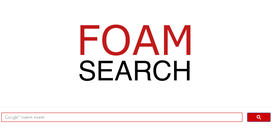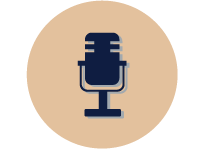|
Free Open Access Medical Education (FOAM) was first identified during the 2012 ICEM conference, and since then has grown into a collection of resources and a strong community that supports the idea of constantly evolving, collaborative and interactive open access medical education. FOAM is independent of platforms — it includes blogs, podcasts, tweets, Google hangouts, online videos, text documents, photographs, facebook groups, and a whole lot more. Because of this, FOAM itself can be overwhelming; where to start, who to listen to, how to learn. In that end, we have built this page to help provide an initial starting point into the FOAM world.
For a more in-depth look at the history of FOAM, LITFL has a wonderful page dedicated to the history and links to almost every resource available. |
How to use FOAM

Foam is not a substitution for your texts or grand rounds, and you need a solid base to build on, so ensure you are also working on core content and literature, while using FOAM as an adjunct to your learning. Use FOAM as a tool to stay updated, reiterate what you are reading and learning, and to engage with physicians around the world. FOAM is also a great way to learn how others practice medicine; just as every attending has a different style, most FOAM creators have a unique perspective as well.
We recommend finding a few blogs or podcasts that you appreciate the most, and find a way to incorporate them into your schedule. Whether you have a weekly email to yourself (Use IFTTT to automatically email you) or use podcasts while you exercise, getting into a system that works for you is the most important step.
The easiest way to find interesting content? Search FOAM! GoogleFOAM.com is your one-stop shop for finding interesting FOAM articles, blogs, and podcasts pertaining to the topic at hand. Not only is is easy to use, it's easy to remember, and searches every FOAM resource available.
We recommend finding a few blogs or podcasts that you appreciate the most, and find a way to incorporate them into your schedule. Whether you have a weekly email to yourself (Use IFTTT to automatically email you) or use podcasts while you exercise, getting into a system that works for you is the most important step.
The easiest way to find interesting content? Search FOAM! GoogleFOAM.com is your one-stop shop for finding interesting FOAM articles, blogs, and podcasts pertaining to the topic at hand. Not only is is easy to use, it's easy to remember, and searches every FOAM resource available.
Choose Wisely
Because FOAM is easily published online without quality control, it is important to evaluate sources before utilizing a site, podcast, or other information. Personal opinions can easily be sold as educational material, and a high index of suspicion is important when viewing a new source.
- Is the resource credible?
- Is the editorial process and authors independent from sponsors, conflicts of interest and other sources of bias?
- Does the resource cite its references?
- Is the information presented in the resource accurate?
- Is the content of the resource presented in a logical, clear and coherent way?
- Is the resource transparent about who was involved in its creation?
- Is the identity of the resource's author clear?
Join the coversation
Get involved with FOAM by finding great content on Twitter. The #FOAMed hashtag is used heavily, especially during grand rounds by many programs and is an easy way to find cool cases, new information and quality discussions.
The Great 8: Our personal favorites across every platform
EM Basic | Podcast & Website
"Your Bootcamp Guide to Emergency Medicine". Created by Steve Carroll, this podcast (and great website/blog as well) is written with EM interns and medical students in mind, but is great to review the basics on core content and less-seen presentations. Each podcast utilizes repetitive bullet-points to help ensure key points are remembered. Great 'easy listening' podcast for driving, exercising, or other times. Terrific website as well with blog posts for every episode including great PDFs that can help with medical student teaching. ERCast | Podcast & Website Rob Orman's excellent podcast and website, which includes "Splint like a Pro" video series, and a quick and easy Anticoagulation Reversal Guide. Each episode discusses a single issue, usually with a guest specialist from the applicable field. Very easy to understand and congenial FOAM Cast | Podcast & Website Painless way to stay up-to-date on new journal articles (such as the recent qSOFA article) and core content. The hosts are easy to understand, moderately repetitive to aid learning, and provide just enough simplification for difficult topics. RoshReview questions are frequently sprinkled in as well. Each episode is short (less than 20 minutes). Website is fairly basic but provides background videos and show notes. EMCrit | Podcast & Blog "Maximally Aggressive Care". A great podcast, EMCrit and also a website with a large number of blog posts that do not have podcasts. I recommend browsing through the older podcasts as many great topics have been discussed in the past by Scott Weingart, the host and ED Intensivist. The Ultrasound Podcast | Podcast From the University of Kentucky, a great podcast with videos that provides basics as well as advanced ultrasound techniques. The website also has a great FREE textbook for learning ultrasound. Urgent Matters | Podcast & Website Produced here at GW by Dr. Pines, Urgent Matters is a policy and ED improvement podcast and site with a wide variety of topics, and a great amount of information on the webpage regarding emergency medicine innovation and discussion of current initiatives in EDs across the world. Life In The Fastlane | Website Great blog as well as an in-depth EKG library, toxicology library, critical care discussions, and beyond. Well worth your time to look through and find some great educational gems. I frequently utilize LITFL during clinical shifts as well because it is easy to find and quick to read. ALiEM | Website, PV Cards, and Quizzes Not only a great source of information, but somewhere you can get involved and produce FOAM content that is peer reviewed! ALiEM also produces e-courses which are produced by residents and peer reviewed as well. Clinical content varies greatly within a broad range of presentation styles. ALiEM is a great resource to learn just about anything (or produce content on just about anything!) |
Podcasts
ERCast | Podcast & Website
Rob Orman's excellent podcast and website, which includes "Splint like a Pro" video series, and a quick and easy Anticoagulation Reversal Guide. Each episode discusses a single issue, usually with a guest specialist from the applicable field. Very easy to understand and congenial FOAM Cast | Podcast & Website Painless way to stay up-to-date on new journal articles (such as the recent qSOFA article) and core content. The hosts are easy to understand, moderately repetitive to aid learning, and provide just enough simplification for difficult topics. RoshReview questions are frequently sprinkled in as well. Each episode is short (less than 20 minutes). Website is fairly basic but provides background videos and show notes. EM Basic | Podcast & Website "Your Bootcamp Guide to Emergency Medicine". Created by Steve Carroll, this podcast (and great website/blog as well) is written with EM interns and medical students in mind, but is great to review the basics on core content and less-seen presentations. Each podcast utilizes repetitive bullet-points to help ensure key points are remembered. Great 'easy listening' podcast for driving, exercising, or other times. Terrific website as well with blog posts for every episode including great PDFs that can help with medical student teaching. Rebel EM | Podcast & Well Done Website Lorem ipsum dolor sit amet, consectetur adipiscing elit, sed do eiusmod tempor Lots of interesting topics (dermabond to keep IVs in place) mixed with no-frills core content. Salim Rezaie does a great job both on the podcast and blog providing useful information and evaluation of new literature. He also has a habit of creating simple, visually appealing charts to breakdown more difficult subjects. EMCrit | Podcast & Blog "Maximally Aggressive Care". A great podcast, EMCrit and also a website with a large number of blog posts that do not have podcasts. I recommend browsing through the older podcasts as many great topics have been discussed in the past by Scott Weingart, the host and ED Intensivist. All NYC EM | Podcast Wide variety of 20 minute podcasts (including many video casts) from NYC EM residency grand rounds. Although not frequently updated, a lot of good core content. This is best viewed on a computer/tablet if you are wanting the full-on video component. Tox Now | Podcast Good toxicology bits--not just your worn out tox topics, lots of interesting and fun discussions. The Ultrasound Podcast | Podcast From the University of Kentucky, a great podcast with videos that provides basics as well as advanced ultrasound techniques. The website also has a great FREE textbook for ultrasound. The EMJ Club | Podcast Coming from the Washington University Emergency Medicine Journal Club. I have not personally utilized this podcast, however they discuss a lot of interesting topics, including Ketamine for pain and other topics we have frequently had debates on during grand rounds. Feedback please. Urgent Matters | Podcast & Website Produced here at GW by Dr. Pines, Urgent Matters is a policy and ED improvement podcast and site with a wide variety of topics, and a great amount of information on the webpage regarding emergency medicine innovation and discussion of current initiatives in EDs across the world. EM Cast | Amal Mattu's Paid Podcast EM Cast requires a subscription. Although Dr. Mattu is a very well know EM physician, I cannot imagine this podcast could provide much more knowledge than all of our free resources above. If I was famous I'm sure I would do something similar. |
Websites & Blogs
Life In The Fastlane | Website
Great blog as well as an in-depth EKG library, toxicology library, critical care discussions, and beyond. Well worth your time to look through and find some great educational gems. I frequently utilize LITFL during clinical shifts as well because it is easy to find and quick to read. Dr. Smith's EKG Blog | Website Straight forward website with TONS of EKGs, both typical and atypical with lots of learning built into each post. ALiEM | Website, PV Cards, and Quizzes Not only a great source of information, but somewhere you can get involved and produce FOAM content that is peer reviewed! ALiEM also produces e-courses which are produced by residents and peer reviewed as well. Clinical content varies greatly within a broad range of presentation styles. ALiEM is a great resource to learn just about anything (or produce content on just about anything!) Free Emergency Medicine Talks | Website Website created to distribute Joe Lex's library of lectures from hundreds of authors and topics. Has not been updated in a long time, however has great content on a wide variety of topics. The Skeptic's Guide to Emergency Medicine | Website & Podcast A weekly podcast and website that identifies a new journal each week and breaks down the research and discusses the results. SGEM provides an easy to use stepwise guide to reading and interpreting journal articles and is a great way to become familiar with research. EM Literature of Note | Website No BS, parred down website by Ryan Radecki that covers recent literature in EM. Also a few discussions on the finer points of Scotch. Useful to discuss new and sexy topics in EM more than core content. |
Apps & Misc
IF | App
If (previously called IFTTT) is an automation app that allows you to do create actions based on If Then sentences. (i.e. If Dr. Smith posts a new EKG, email the new post to me, or If hastag #foam is used Then text me) Very powerful software and an easy way to send FOAM directly to your email. |




